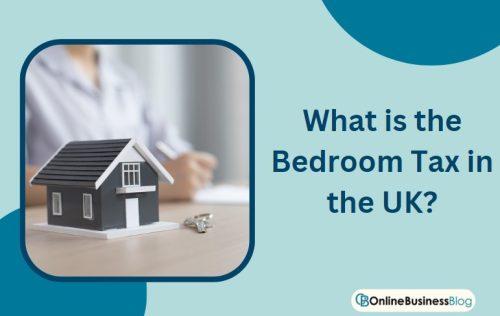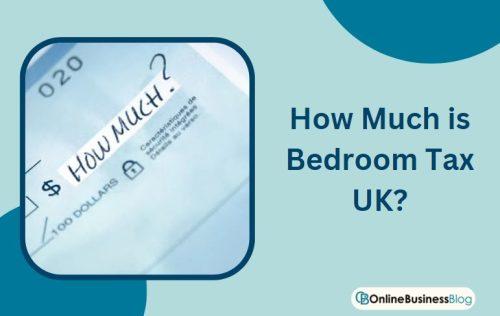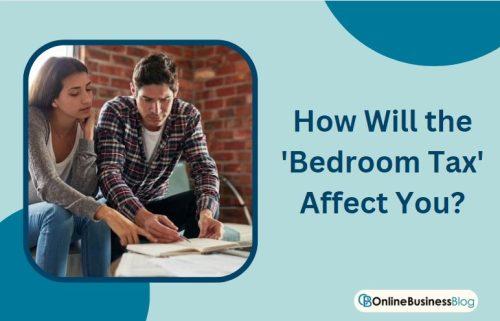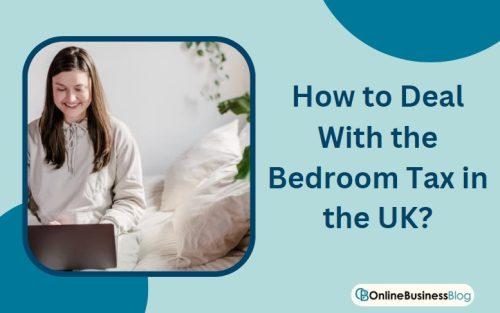Post Contents
Are you a social housing tenant in the UK? If so, you may be familiar with the term “bedroom tax.” But what exactly is it and how does it affect you? In this blog post, we’ll dive into the details of the bedroom tax in the UK, its origins, who has to pay it, and most importantly, how to deal with it. Whether you’re facing a reduction in your housing benefits or simply curious about this controversial policy, read on to find out everything you need to know about the bedroom tax and how to navigate its challenges.
What is the Bedroom Tax in the UK?

If you’re renting a council or housing association property in the UK and have a spare bedroom, you may find your Housing Benefit or housing costs element of Universal Credit being reduced. This policy is commonly known as the “Bedroom Tax,” though it goes by other names like the “under-occupation penalty” or the “removal of the spare room subsidy.”
Essentially, if you’re deemed to have more bedrooms than necessary, your benefits will be affected. The purpose behind this policy, introduced in April 2013 by the Conservative-Liberal Democrat government, was to reduce housing benefit costs and encourage people to move into smaller properties.
However, this controversial policy has faced criticism for its potential impact on homelessness and perceived unfairness. Over time, several amendments have been made to address concerns raised by social housing tenants.
While it remains a hot topic of debate even today, understanding what exactly constitutes a spare bedroom and who falls under its purview is crucial for those affected by this policy. Let’s explore further to gain clarity on how the bedroom tax can impact individuals in different situations.
Who Created the Bedroom Tax in the UK?
The bedroom tax, also known as the under-occupancy penalty or removal of the spare room subsidy, was introduced in April 2013 by the Conservative-Liberal Democrat government in the UK. This policy aims to reduce housing benefits for social housing tenants who are deemed to have more bedrooms than they need. The then-chancellor of the Exchequer, George Osborne, introduced this policy as part of a wider welfare reform package.
The government argued that implementing the bedroom tax was necessary to lower the cost of housing benefits and incentivize people to move into smaller properties. However, it faced significant backlash from critics who believed it was unfair and would lead to increased homelessness.
Since its introduction, there have been several amendments made to the bedroom tax. In 2018, a discretionary housing payment (DHP) was introduced by the government to assist individuals struggling with rent payments due to this policy. However, there has been criticism regarding difficulties in applying for DHP and inadequate financial assistance provided.
The bedroom tax remains a controversial topic that continues to be debated extensively. Its long-term impact on social housing tenants and its effectiveness in achieving its intended goals remain subjects of ongoing discussion within society.
How Much is Bedroom Tax UK?

The amount of bedroom tax in the UK varies depending on the number of extra bedrooms you have in your social housing property. If you have one extra bedroom, your housing benefit or housing element of Universal Credit will be reduced by 14%. For those with two or more extra bedrooms, the reduction is 25%.
It’s important to note that these reductions are applied to your eligible Housing Benefit or Universal Credit, not directly to your rent. So if your rent is £380 a month and you have one extra bedroom, your benefit will be cut by £53.20 each month.
While this may seem like a significant decrease, it’s essential to explore all available options before feeling overwhelmed. There are ways to mitigate the impact of the bedroom tax such as applying for a discretionary housing payment (DHP), moving to a smaller property if feasible, negotiating lower rent with your landlord, seeking assistance from debt advice agencies, and appealing against decisions if necessary.
Remember that every situation is unique and requires careful consideration based on individual circumstances. It can be challenging dealing with bedroom tax but exploring different avenues can help alleviate some financial strain associated with it.
Who Has to Pay Bedroom Tax UK?
Who has to pay the bedroom tax in the UK? This is a common question that arises when discussing this controversial policy. The answer is not as straightforward as one might think. The penalty will affect you if you are classified as having a spare bedroom and meet certain criteria. First, you must be between 16 and the minimum State Pension Credit age. Second, you must receive a Housing Benefit or the housing element of Universal Credit. Third, you must rent your property from a local authority, housing association, or registered social landlord.
Determining whether you have a spare room involves specific rules outlined by the government. For example, two children under 16 of the same gender are expected to share a room while two children under 10 are expected to share regardless of their gender. Additionally, each person over 16 or a couple in a household is allowed one bedroom.
There are exemptions to consider as well. If either you or your partner are over the qualifying age for State Pension Credit, then you won’t be affected by the bedroom tax. Approved foster carers also benefit from an extra bedroom allowance even between placements.
Students living at home who go no more than 52 weeks without returning home and disabled individuals with specific circumstances may also be exempt from this policy.
It’s important to understand how being affected by the bedroom tax can impact your finances and ability to afford your rent payments. Depending on how many extra bedrooms deemed unnecessary by authorities exist in your household, eligible Housing Benefit or the housing element of Universal Credit can be reduced by either 14% for one extra bedroom or 25% for two or more extra bedrooms.
If faced with this situation and struggling financially, there are options available for assistance. You can contact your landlord—whether it’s a housing association or council—and inquire about transferring to smaller accommodations if possible; they may also provide information on additional financial support programs such as Discretionary Housing Payments (DHP) that could help you cover your rent.
Drawing up a household budget is another practical step to assess whether the bedroom tax or any other financial challenge you’re facing is manageable. Finally, if needed, you can seek advice from local housing associations or Citizens Advice Bureau for further guidance.
Who is Affected by the ‘Bedroom Tax’?

The bedroom tax in the UK affects individuals who are classified as having a spare bedroom and meet certain criteria. This penalty applies to those between the ages of 16 and the minimum State Pension Credit age, receiving Housing Benefit or housing element of Universal Credit, and renting from a local authority, housing association, or registered social landlord.
To determine if you have a spare room, specific rules are followed. For instance, two children under 16 of the same gender are expected to share a room. Similarly, two children under 10 must also share regardless of their gender. Additionally, each person over 16 or a couple in a household is entitled to one bedroom.
If you reside in Scotland or Northern Ireland and find yourself affected by the bedroom tax, there are options available for assistance. In Scotland, applying for a Discretionary Housing Payment ensures that payments will be guaranteed so that no one is worse off financially due to this policy. The Northern Ireland government provides funding specifically designed to support those impacted by the bedroom tax.
It’s important to understand these regulations and explore all available resources when facing challenges related to the bedroom tax in order to make informed decisions about your living situation.
Who is Exempt From the ‘Bedroom Tax’?
There are several exemptions to the bedroom tax in the UK, ensuring that certain individuals or circumstances are not affected by this policy. If you or your partner are over the qualifying age for State Pension Credit, you will be exempt from the bedroom tax. However, under Universal Credit, both partners must be over the State Pension Credit age to qualify for the exemption.
Approved foster carers are also given an extra bedroom allowance, even if they’re between placements. This applies as long as they have previously fostered a child or become an approved foster carer within the past 12 months.
If you have an adult child living at home who is serving in the Armed Forces, they will still be considered as living at home even when deployed on operations. During this time, deductions for non-dependants will also be removed.
For adult children who are students and their main residence is your home, their bedroom will not be deemed ‘spare’ unless they go without returning home for more than 52 weeks (six months under Universal Credit). Full-time students won’t be exempt from Housing Cost Contribution under Universal Credit either.
Those receiving care or support from their landlord in supported exempt accommodation do not have to pay the under-occupancy penalty. Additionally, if your council has placed you in certain types of temporary accommodation due to homelessness, your Housing Benefit may not be affected.
In cases where there is a spare room resulting from a death in your household, there won’t be any reduction applied for that specific bedroom for 52 weeks (three months with Universal Credit).
Disabled individuals and their partners who receive regular overnight care can claim an additional bedroom allowance. Furthermore, severely disabled children receiving middle or higher rates of Disability Living Allowance components can have an extra room if sharing isn’t possible due to their disability.
These exemptions play a crucial role in preventing certain vulnerable groups and individuals from being adversely impacted by the bedroom tax policy.
How Will the ‘Bedroom Tax’ Affect You?

If you find yourself affected by the bedroom tax, it’s important to understand how it will impact your housing benefit or the housing element of Universal Credit. The reduction will depend on the number of extra bedrooms you have. For one extra bedroom, your benefit will be cut by 14%, and for two or more extra bedrooms, it will be reduced by 25%.
To address the financial challenges caused by this reduction, there are several steps you can take. First and foremost, reach out to your landlord – whether that is a housing association or council – and discuss your concerns about paying rent. They may have options available to help you navigate through this situation.
You can also consider applying for a Discretionary Housing Payment (DHP) from your local council. This payment is designed to provide additional support with housing costs for those receiving Universal Credit or Housing Benefit.
Creating a household budget is another essential step in managing the effects of the bedroom tax. Evaluate all sources of income and expenses carefully to determine if adjustments need to be made. It’s crucial to see if there are any opportunities to increase income through various means such as ensuring eligibility for entitled benefits.
Another potential solution worth exploring is renting out your spare bedroom as a way to supplement your income. However, keep in mind that taking in a lodger may affect how your Housing Benefit or Universal Credit is assessed. Under certain circumstances, half of any additional rental income above £20 per week may be considered as income and consequently impact benefits received.
Before proceeding with renting out a room, check with your insurer regarding any potential implications on contents insurance coverage.
Challenging a ‘Bedroom Tax’ Decision
Challenging a bedroom tax decision can be a daunting task, but it’s important to know that you have the right to appeal if you believe the decision is unfair. One of the most common reasons for appealing is when you genuinely need the extra bedroom because someone in your household needs to use it overnight. Whether it’s your partner, child, or non-dependant adult, their well-being and comfort should not be compromised.
If you’re receiving Housing Benefits, it’s crucial to address the issue promptly by writing a letter to your local council within one month of receiving the decision. On the other hand, if you’re on Universal Credit, you’ll first need to request a mandatory reconsideration before proceeding with an official appeal within one month of receiving the decision.
Remember that gathering evidence and providing supporting documentation will strengthen your case. It’s essential to highlight why having an additional room is necessary for your specific circumstances and how removing this benefit would impact those involved. Stay persistent throughout this process as challenging decisions can often be frustrating but remain hopeful that justice will prevail in ensuring fair treatment for all individuals affected by this policy.
How to Deal With the Bedroom Tax in the UK?

Dealing with the bedroom tax in the UK can be challenging, but there are strategies you can employ to navigate this policy.
- One option is to apply for a discretionary housing payment (DHP) from your local council. This one-time payment can help alleviate financial strain and assist with paying your rent.
- Another approach is to explore the possibility of moving to a smaller property, which would exempt you from the bedroom tax altogether. However, it’s important to acknowledge that finding available smaller properties may not always be feasible.
- Reducing your rent through negotiations with your landlord is another potential solution worth considering. Lowering your monthly rental costs could provide some relief amidst budget constraints. Seeking assistance from a debt advice agency is also advisable if you find yourself struggling financially due to the bedroom tax. These agencies specialize in creating budgets and identifying areas where expenses can be reduced.
- If you believe that the decision regarding the bedroom tax is unjust, appealing it is an option worth exploring. Be sure to gather evidence supporting your appeal before proceeding.
- In addition, maintaining a comprehensive record of income and outgoings will allow you better oversight of spending habits and ensure that no unnecessary expenses are incurred.
- Reach out for support from local housing associations or councils as they may offer financial aid or guidance on finding alternative accommodation options suited to your needs.
- Don’t hesitate to ask for help when needed; numerous organizations exist specifically designed to assist individuals dealing with challenges presented by the bedroom tax.
Remember that managing the impact of the bedroom tax requires resourcefulness and proactive measures tailored towards reducing rent expenditure while retaining stability in your living situation.
Conclusion
In dealing with the bedroom tax in the UK, it is important to understand the policy and its implications. While it may be a challenging situation for those affected, there are strategies that can help alleviate some of the financial burden.
Applying for a discretionary housing payment (DHP) can provide temporary relief by offering additional support to pay your rent. Moving to a smaller property might also be an option if available, as it would exempt you from the bedroom tax altogether. Additionally, negotiating a lower rent with your landlord or seeking assistance from debt advice agencies can help reduce financial strain.
If you believe that the bedroom tax decision is unjust, remember that you have the right to appeal. Providing evidence and supporting documentation will strengthen your case.
It’s crucial to keep track of your income and expenses throughout this process. This will enable you to manage your finances effectively and ensure that you’re not overspending.
Don’t hesitate to seek help from local housing associations or councils who may offer financial aid or assist in finding alternative accommodation options.
Dealing with the bedroom tax may not be easy, but remember that there are resources available to support you through these challenges. By staying proactive and exploring various avenues for assistance, it is possible to navigate this policy while minimizing its impact on your life.


